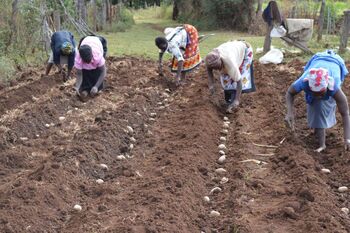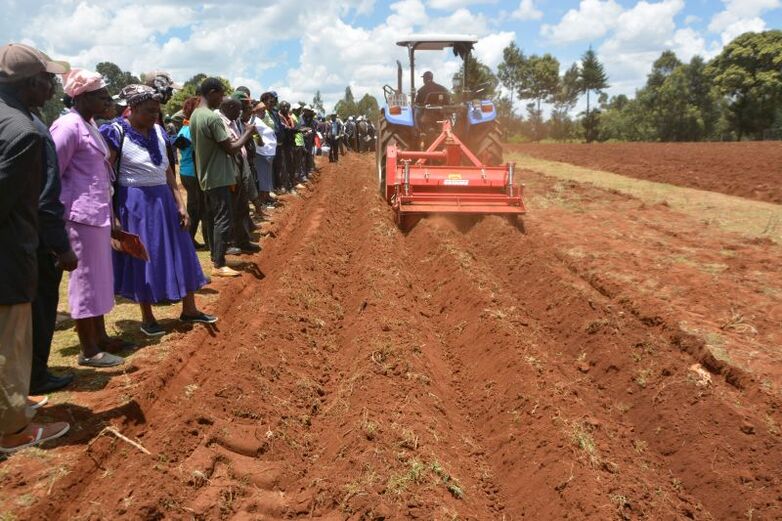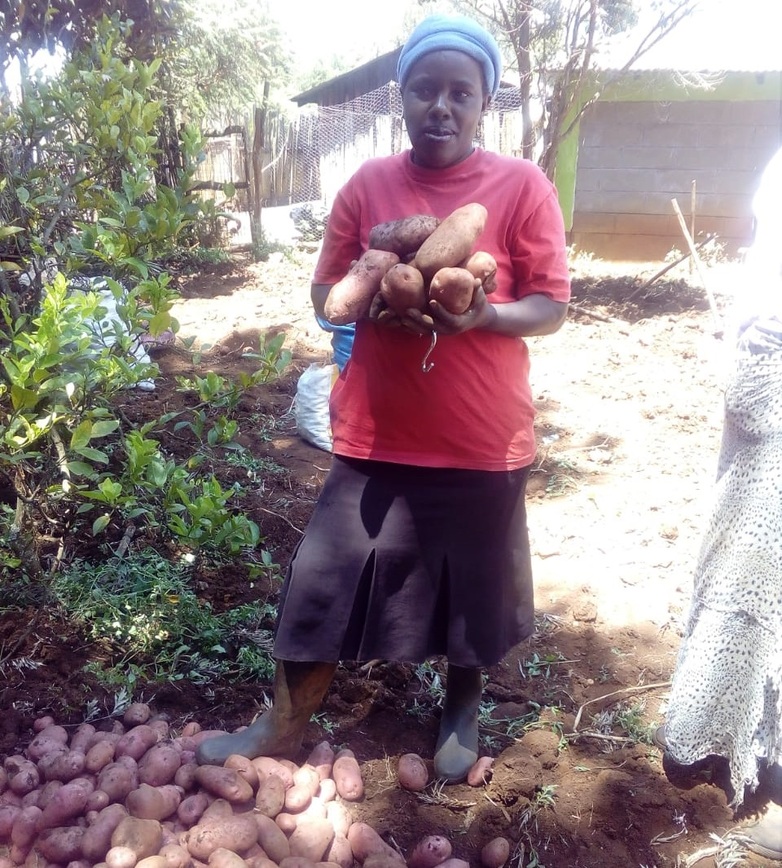Promoting potato value chains in East Africa
Promotion of Nutrition-Sensitive Potato Value Chains in East Africa

Context
More than a quarter of the population in Kenya and Uganda are undernourished. As many as 42 per cent of the people there are living in poverty on less than 2.15 US dollars a day. Agriculture is very important for the economies of the two countries. Almost three quarters of the populations depend on agriculture for employment and income.
Potatoes are an important staple food and source of income for over a million small farmers and their families in these countries. The potential yields are considerable, and with short cultivation periods of between 90 and 120 days it is possible to have two to three harvests a year. As a source of carbohydrates, protein, vitamins and minerals, the potato meets the demand for healthy and nutritious food and contributes to food security in the two countries.
Objective
Potato value chains improve incomes and nutrition in selected regions in Kenya and Uganda.

Approach
As part of the Special Initiative ‘Transformation of Agricultural and Food Systems’, the project works with the responsible ministries, civil society and the agricultural research sectors in Kenya and Uganda. It promotes the efficiency and quality of potato production and facilitates access to markets for smallholder farms.
The project supports innovative and situation-appropriate cultivation and harvesting practices as well as entrepreneurial skills, thereby opening up opportunities for higher yields and incomes over the long term. Alongside these activities, it is setting up Farmer Field and Business Schools (FFBS), where small farmers receive training.
To improve the nutrition situation, families learn all they need to know about balanced diets and hygiene. In order for these successful approaches to be institutionally anchored and applied over the long term, the project supports dialogue between the actors in the value chain. The measures are laid down in national strategies and so generate long-term positive effects for the population as a whole.

Last update: June 2023





